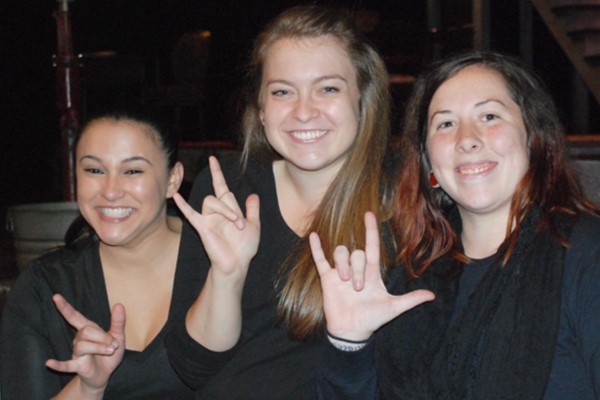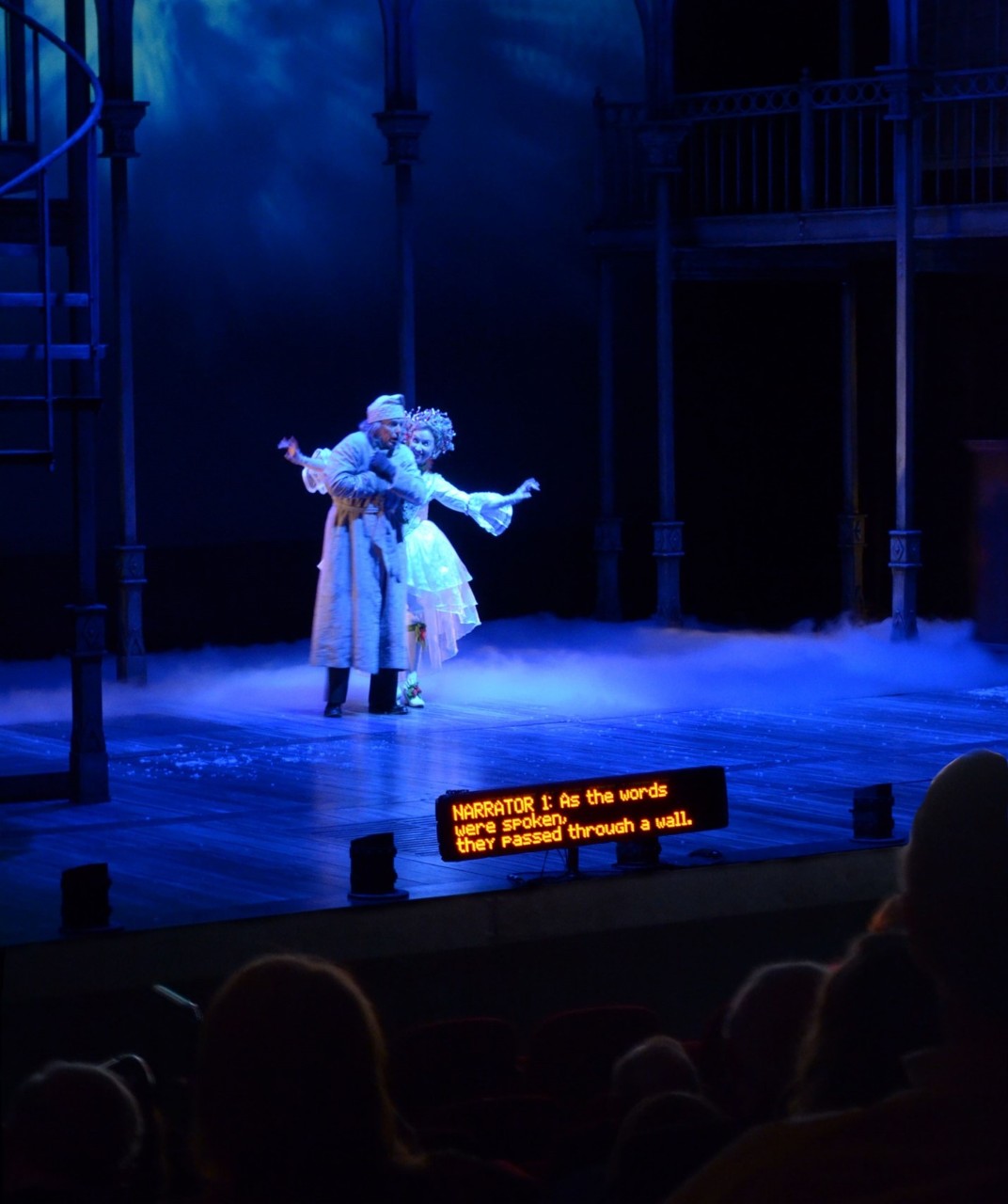Breaking Ground 109 Arts - Bringing Theatre to All
by Brooks Clark, University of Tennessee, Knoxville, Office of Communications & MarketingAbout five years ago, the University of Tennessee Knoxville’s Clarence Brown Theatre (CBT) started an effort to increase its community activities with underserved communities and families. This included the Deaf and hard of hearing, and people with intellectual and developmental disabilities.
“Theatre is about community,” said Tom Cervone, managing director of the CBT. “Throughout our history, community has been our driving force, and we continue to expand thoughtful engagement with the greater Knoxville area every year.”
A recent performance of A Christmas Carol included Deaf Night at the Theatre, a barrier-free experience for members of the hard-of-hearing and Deaf community. The CBT provides this kind of experience for selected performances throughout the season. These performances included:
- American Sign Language interpreters at the box office, concession stand, and usher stations.
- Up to four interpreters signing during the show.
“We had 55 kids and families in attendance,” said Cervone. “It was a tremendous success.”

The CBT has also invested in sensory boxes with:
- noise reducing headphones,
- light-blocking glasses,
- fidget items.
These boxes are for our community members on the autism spectrum and can be checked out at the box office.
To make the theatre space welcoming for all, staff have had training to better equip our volunteer ushers to be more accommodating. We include a note to patrons in the playbill, asking them to help us make the theatre a place where all can be themselves. That may include more movement, sounds, and conversation happening during the production. “It’s important to us that theatre be a place where we can all gather together and celebrate life in all its complexities,” said Hana Sherman, who serves as the theatre’s Grants, Outreach and Education Manager.
Three years ago, the CBT became the first professional theatre in Tennessee to offer in-house open captioning. This has allowed patrons who experience hearing loss to still enjoy the theatre.
“A $10,000 grant from the Alliance of Women Philanthropists enabled us to buy the equipment and pay for the training for us to use it,” said Cervone, “so we can create the captioning in-house. Our goal is to break down the barriers and make theatre more accessible to everyone.”
As one CBT patron shared, “I have attended CBT for years; but as a hard-of-hearing adult, I always ‘missed’ things. However, I enjoy live plays so much that I’ve continued to attend CBT anyway. Having the open captioning turned the CBT from a great to an exceptional experience for me!”
Hana Sherman says, “There are a lot of ways, even little adjustments, we can do to make the theatre a more accessible place. We are learning new things every day and hope to continue conversations with our community to learn ways we can improve their experience.”
Brooks Clark writes for the University of Tennessee, Knoxville, Office of Communications & Marketing. Born in Nashville, he grew up in Washington, D.C., and has lived in Knoxville since 1988.
For questions about accessibility at CBT, contact House Manager David Ratliff at housemanager@utk.edu or call the Box Office at (865) 974-5161. Learn more at https://clarencebrowntheatre.com/accessibility/.
